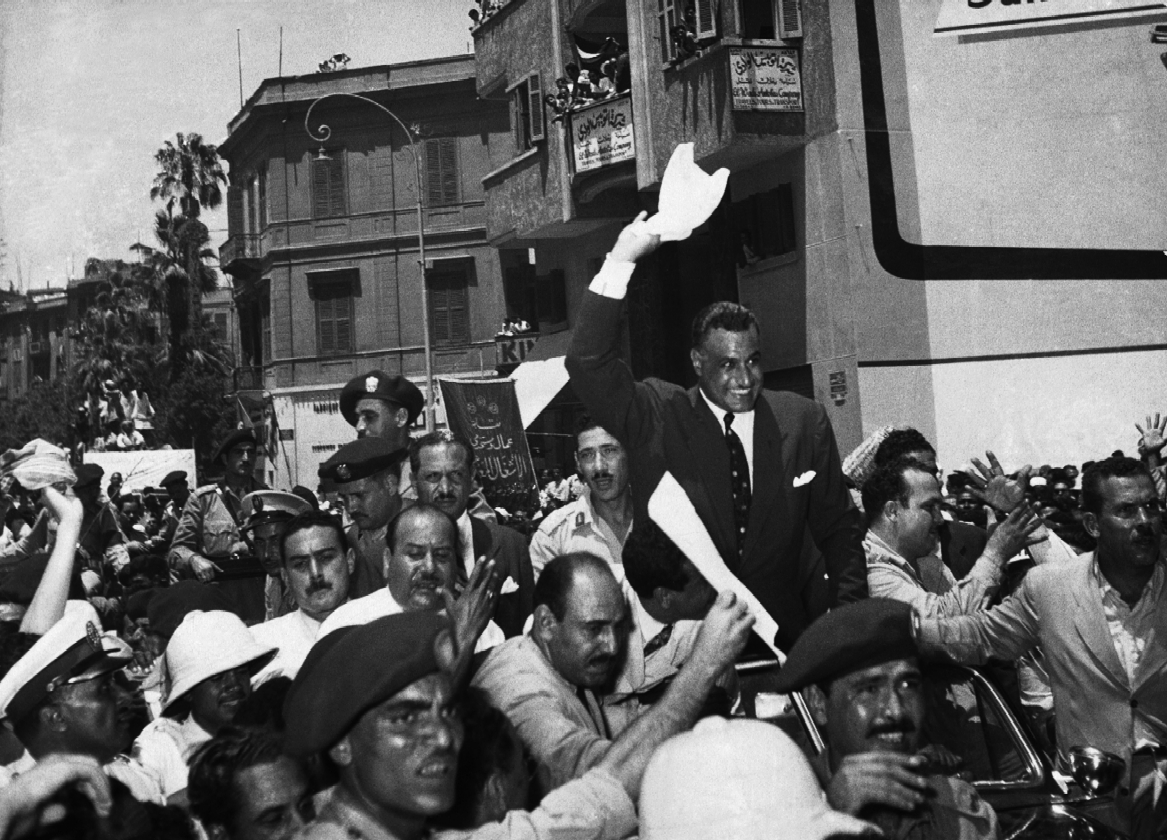In a talk based on his book Radical Arab Nationalism and Political Islam (Georgetown University Press, 2017), Dr. Lahouari Addi assesses the history and political legacy of radical Arab nationalism to show that it contained the seeds of its own destruction.
Dr. Lahouari creatively links the past and present while also raising questions about the future of Arab countries. Is political Islam the heir of radical Arab nationalism? If political Islam succeeds, will it face the same challenges faced by radical Arab nationalism? Will it be able to implement modernity? The future of Arab countries, Addi says, depends on this crucial issue.
For more Status / الوضع, visit www.statushour.com and subscribe to the podcast on iTunes!

Egyptian Prime Minister Nasser cheered in Cairo after announcing the Suez Canal Company, August 1, 1956.
While the revolutionary regimes promised economic and social development and sought the unity of Arab nations, they did not account for social transformations, such as freedom of speech, that would eventually lead to their decline. But while radical Arab nationalism fell apart, authoritarian populism did not disappear. Today it is expressed by political Islam that aims to achieve the kind of social justice radical Arab nationalism once promised.
This lecture was held by Georgetown University's Center for Contemporary Arab Studies, a partner of Status / الوضع.
 Dr. Lahouari Addi is a professor at the Institut d'Études Politiques at the University of Lyon, and research fellow at the Centre de recherche en anthropologie sociale et culturelle in Oran, Algeria.
Dr. Lahouari Addi is a professor at the Institut d'Études Politiques at the University of Lyon, and research fellow at the Centre de recherche en anthropologie sociale et culturelle in Oran, Algeria.